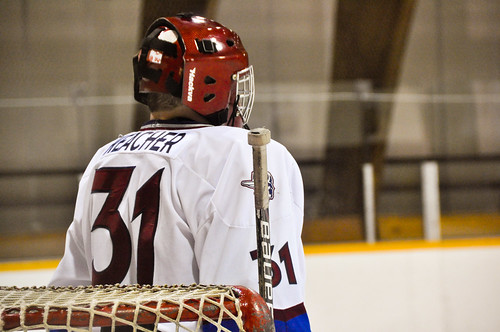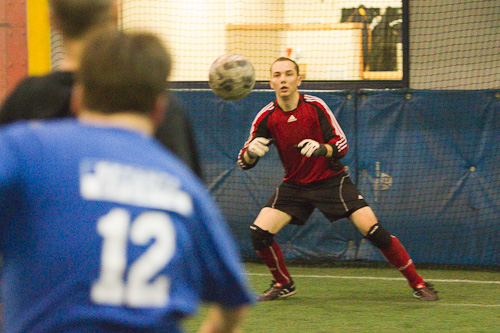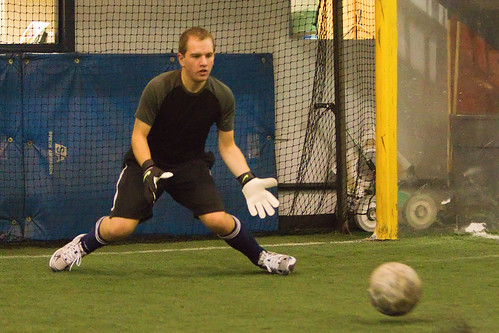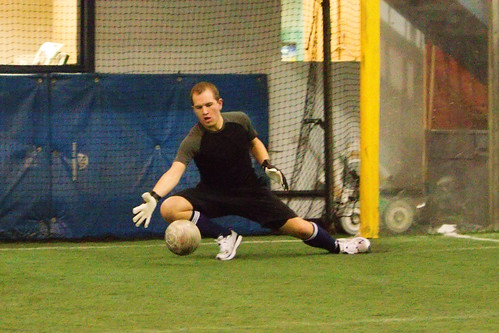Consistency
“You’re a hell of a goalie,” the skater told me.
We had just finished playing at the lunchtime drop-in session at The Pond in Newark, Delaware. His accolade was deserved, at least when judged by my performance during the skate: I had stopped pretty much everything that came my way. However, he did not have the necessary data to determine if my puck stopping prowess was true talent or merely luck.
It can be hard to separate the two. Were all of the shots that were hitting me center-of-mass (i.e., in my chest) the result of my good positioning, or were they the result of poor shooting by the skaters? Did the skaters on the breakaways miss the net because my aggression rushed them into poor aim, or were they just having off days? Did I really intend to make that glove save, or did my glove just happen to be in the right spot?
Perhaps it wasn’t so much that the skaters were having off days as it was that I was having an on day. I was feeling really good going into the skate, and once I found some pegs for the net, that feeling continued on the ice. I was watching the puck all the way in, reacting quickly and decisively, and staying solid on my angles. I was in the zone.
It’s a magical thing being in the zone as a goalie. It’s like being on some sort of crazy puck-stopping drug. The biscuit stands out sharp and crisp, high in contrast against the ice. Everything else becomes blurred. The noisy clamor of the game gets muted. It’s sublime: goaltending flow.
You see the puck, you see the play, you see all of this in the sense that you feel it. You instinctively know what must happen, and it does. The angle of the shooter’s stick, his legs, his arms, his eyes; everything telegraphs where the puck is going like it’s in neon lights. The pace slows down until it’s almost comically slow. The moment of release becomes a foregone conclusion, not a surprise.
It’s concentration on an entirely different level, something that makes you wonder — later, after the moment, when there’s time for reflection — just what might still be possible for humans to accomplish.

Me in net at the University of Waterloo, a night in which I was "near-zone" but not quite fully there (Credit: Sarah)
Like any drug, once you’ve had a taste of the zone in its purest form, you’ll do anything to experience that bliss again. I’ve experienced it doing only four activities: writing, hacking code, playing hockey, and taking photos. When I leave the zone and look back on what I did while in it, the product is sometimes beyond that which I consider within my skill, an observation which then occasionally leads to a flare-up of impostor syndrome.
Then there are times, dreadful times, when it seems like I have a total inability to stop the puck. I’m a few degrees off my angle, a few tenths of a second too late on the reaction, a few inches too low on my glove position. I let in goals like it’s going out of style. The puck seems practically invisible; I’m not following it into my pads, I have no idea where the play is headed, and I seal up about as well as a door on a 1970s Chevy. I’m embarrassed and an embarrassment.
That’s what separates me from the professionals (a label I’m applying in a broad sense). I am either really good or downright terrible. I am wildly inconsistent.
The mark of a professional is to turn out decent work even when not in the zone: sometimes spectacular, but always at least decent. Not every session will be the best of the best, but even the mediocre ones are still pretty good. Anybody can be hot one night or a couple of nights, but turning in decent performances day after day, game after game, is very, very difficult.
I can do that in some disciplines, but hockey is not one of them.
Still, I don’t lose hope that I will one day enjoy, if not higher peaks, then at least shallower lows. Practice, practice.











Recent Comments